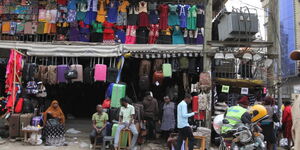The Long-Distance Drivers and Conductors Association (LoDDCA) has raised concerns about the upcoming rollout of the Mpox vaccination campaign in Kenya.
The association stated in a notice that, although it recognizes Mpox as a serious health threat, many truck drivers and cross-border truckers feel side-lined in the vaccination process.
They argued that the community has not been provided with sufficient information about the vaccine and its safety, resulting in growing scepticism.
According to LoDDCA, drivers feel there has been a lack of direct engagement and education on what the vaccine is, how it works, and whether it is safe. They pointed out that in past vaccination campaigns, many drivers experienced anxiety when reports of side effects emerged, yet little follow-up support was offered.
The group also noted that there is a strong feeling among drivers that they are being unfairly used as test subjects for new health interventions without prior consultation.
They further raised alarm over reports from Uganda where some drivers, including Kenyan truckers transiting through, were allegedly compelled to take the vaccine.
LoDDCA said that any form of coercion at border points amounts to a violation of the right to informed consent and has become a source of fear and mistrust among its members.
It maintained that it supports public health initiatives but insisted that its members would not take part in the Mpox vaccination campaign until their concerns are addressed. The group stated that there is need for a clear, evidence-based assurance of the vaccine’s safety and effectiveness before drivers can agree to participate.
The association urged the Ministry of Health, East African health authorities, and other partners to engage directly with drivers through open forums and sensitization sessions. It also called for transparent information on how the vaccine was developed, tested, and proven safe.
In addition, LoDDCA demanded that participation be voluntary, especially at border points and transit corridors, to protect the rights of drivers across Kenya and the wider region.
The association emphasized that health interventions are most effective when communities are respected, informed, and fully involved in the process. It reiterated its openness to dialogue and collaboration with government and health partners to ensure the safety and well-being of drivers, while still supporting national and regional health priorities.
This concern arose after Susan Outa, Busia County Chief Officer for Public Health and Sanitation, stated that the county is particularly vulnerable to disease outbreaks because it serves as a gateway. This follows repeated outbreaks of COVID-19, cholera, and Mpox.
She added that in 2024, the county recorded 59 cases of Mpox, with two fatalities among individuals who had other underlying health conditions. To address this, the county launched public sensitization campaigns and reopened Alupe Sub-County Hospital to general patients.












